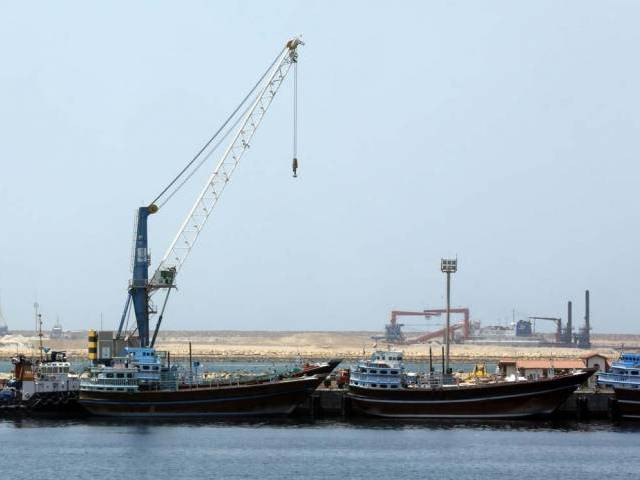'Pakistan does not view Chabahar port as competition'
Pak says it would rather complement CPEC’s efforts of increasing regional connectivity

PHOTO: AFP
He said this during the 32nd AGM and Conference of the Pakistan Institute of Development Economics. The theme of the lecture was ‘Regional and Domestic Political Economy’.
Iqbal said that the policies should be research-based and should not be formed intuitively.
Chabahar port — the new game changer?
Highlighting the importance of CPEC for Pakistan, the minister said that the project is not only a game-changer but it could also be a fate-changer if implemented correctly.
Iqbal said 10 years ago, the world was looking Pakistan as a security concern but now governments and think-tanks worldwide are looking for opportunities they can gain through CPEC.

Giving examples of giants like Blackberry and Nokia who lost their place as global leaders, he said that we must adapt to the changing conditions around the world or else we would be left behind.
Iqbal said that CPEC is not just about transportation infrastructure and energy projects. “It is a framework that is much broader, holistic, and looks at all the socioeconomic factors of development.” The minister added that under CPEC, China does not look at Pakistan as a market but a country with shared destiny.
“By sharing their development experience, the Chinese are helping Pakistan to expedite its development process.”
Pakistan government’s Chief Economist Dr Nadeem Javed said that CPEC is primarily an energy-driven connectivity project, the aim of which is to reduce energy constraints and improve fuel mix.
Chabahar port will help India bypass Pakistan: Afghan president
“Post-July 2017 the gap between demand and supply of energy will end and by July 2018 generation of power is expected to be in surplus due to CPEC.”
Canadian University’s Professor Tariq Amin Khan said that problems in existing social relations require alteration in structure of rural society.
“If the goal is to create less oppressive social relations then the government needs to intervene.”
The situation demands land distribution, learning lessons from history and imposition of agriculture tax, said Khan.
The three-day long conference was attended by a large number of social scientists, researchers, faculty members from universities across Pakistan, students, policymakers and government functionaries.
Published in The Express Tribune, December 16th, 2016.
Like Business on Facebook, follow @TribuneBiz on Twitter to stay informed and join in the conversation.



















COMMENTS
Comments are moderated and generally will be posted if they are on-topic and not abusive.
For more information, please see our Comments FAQ